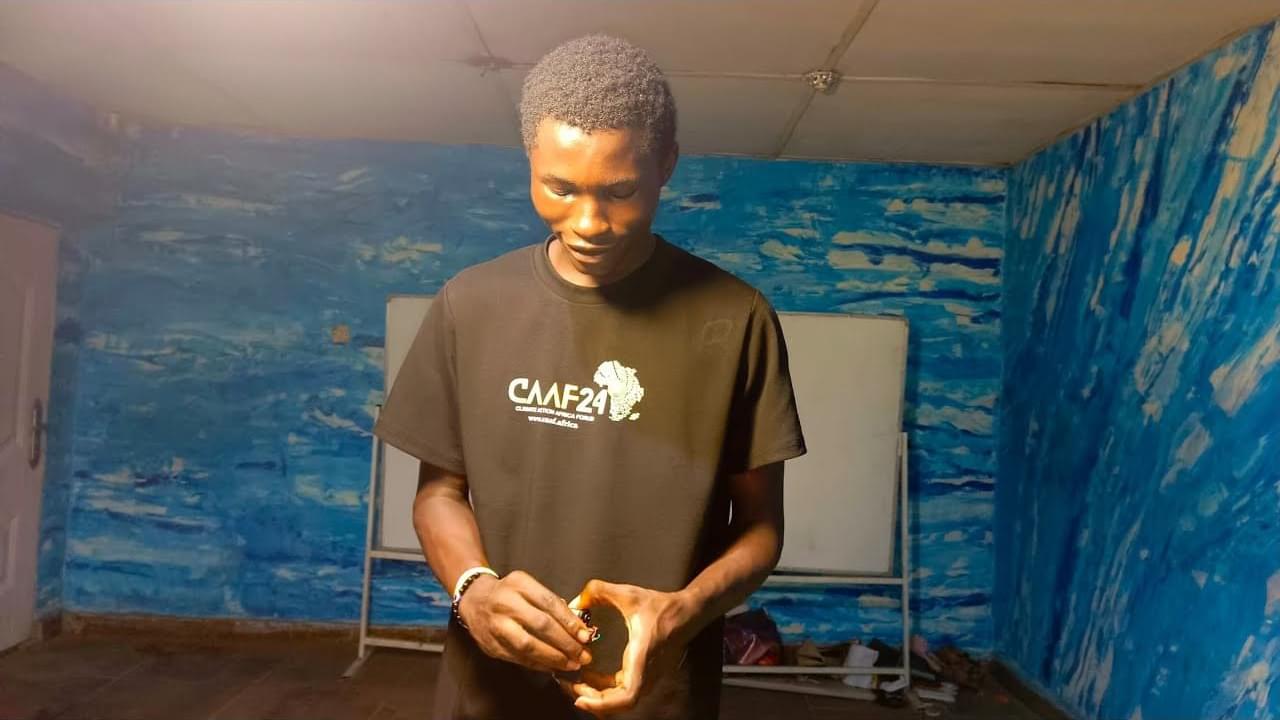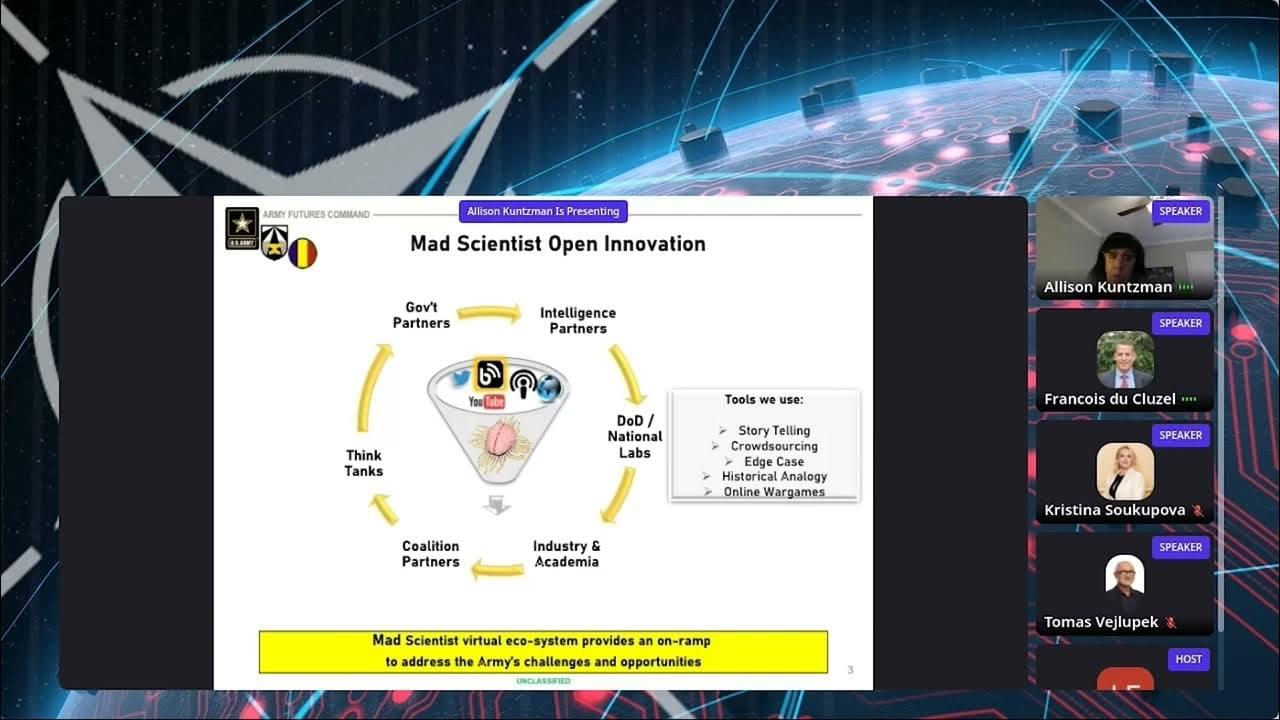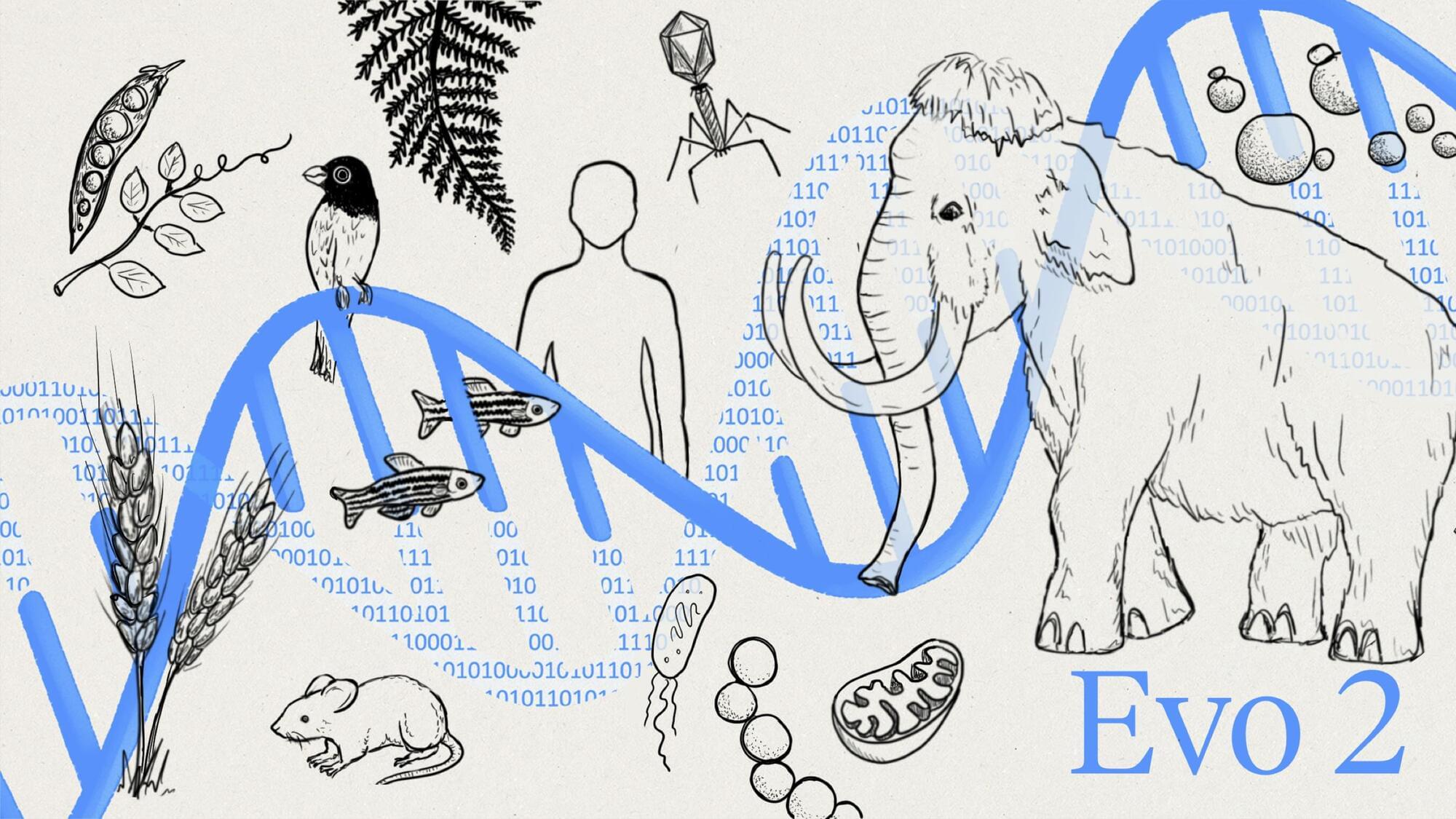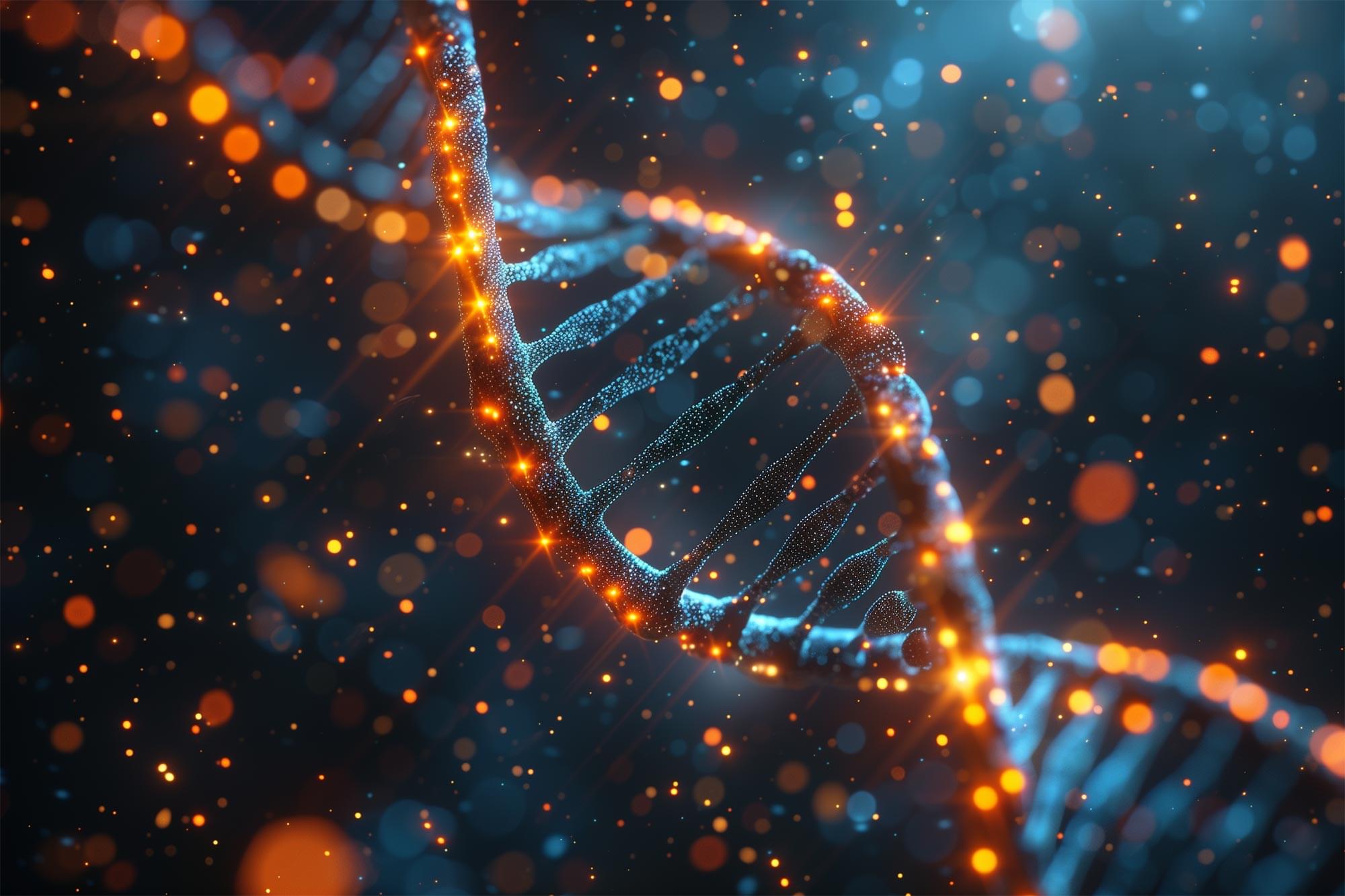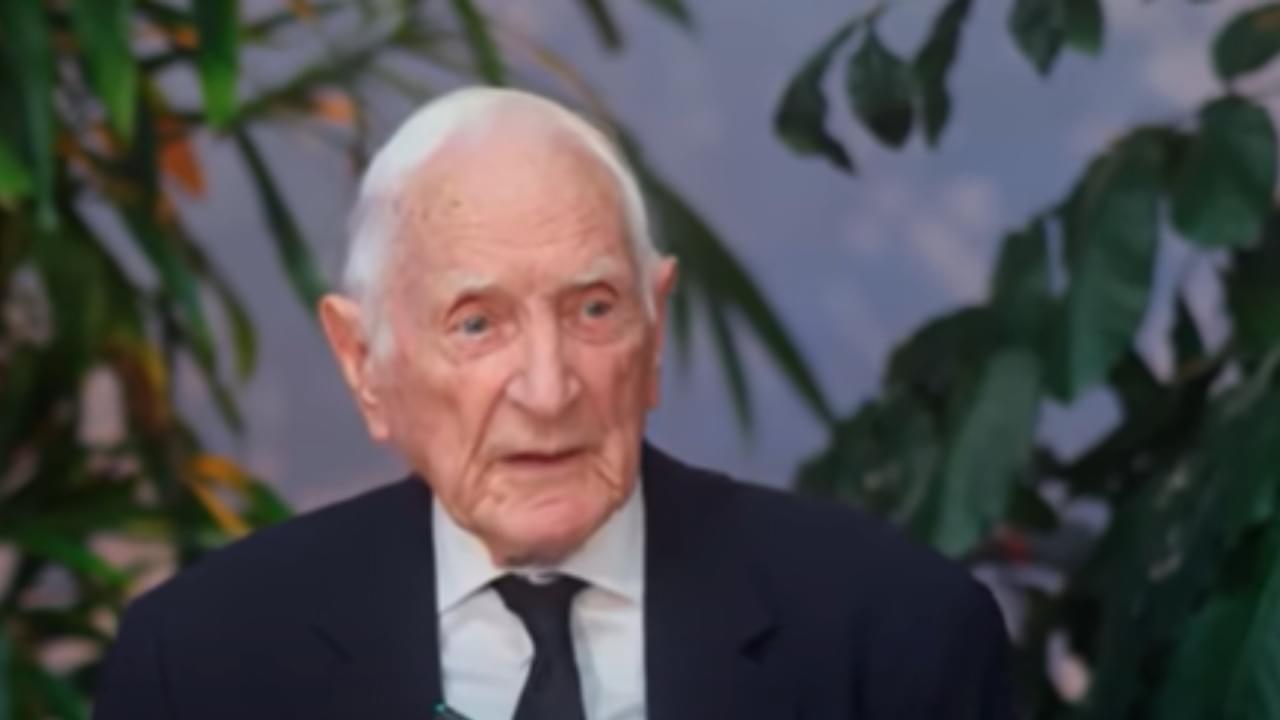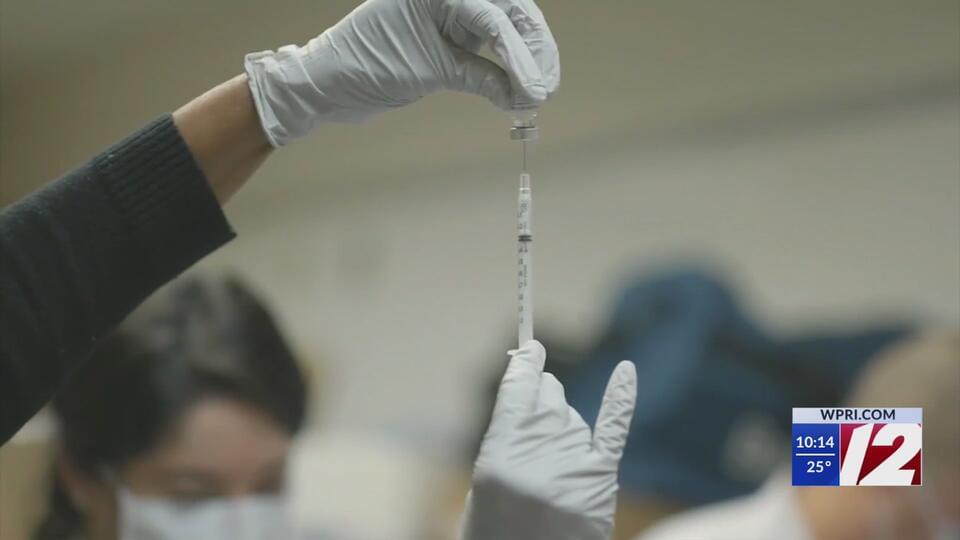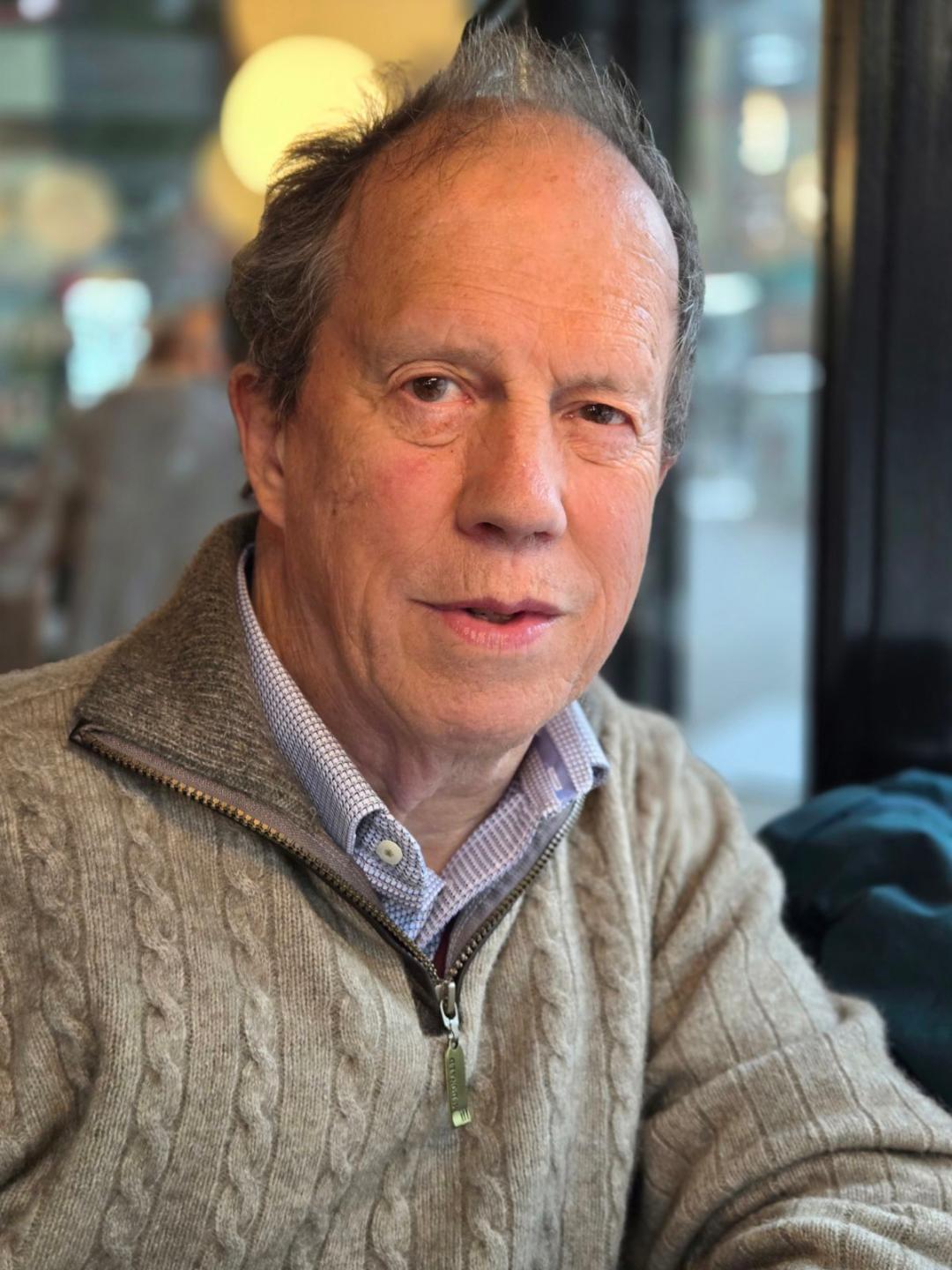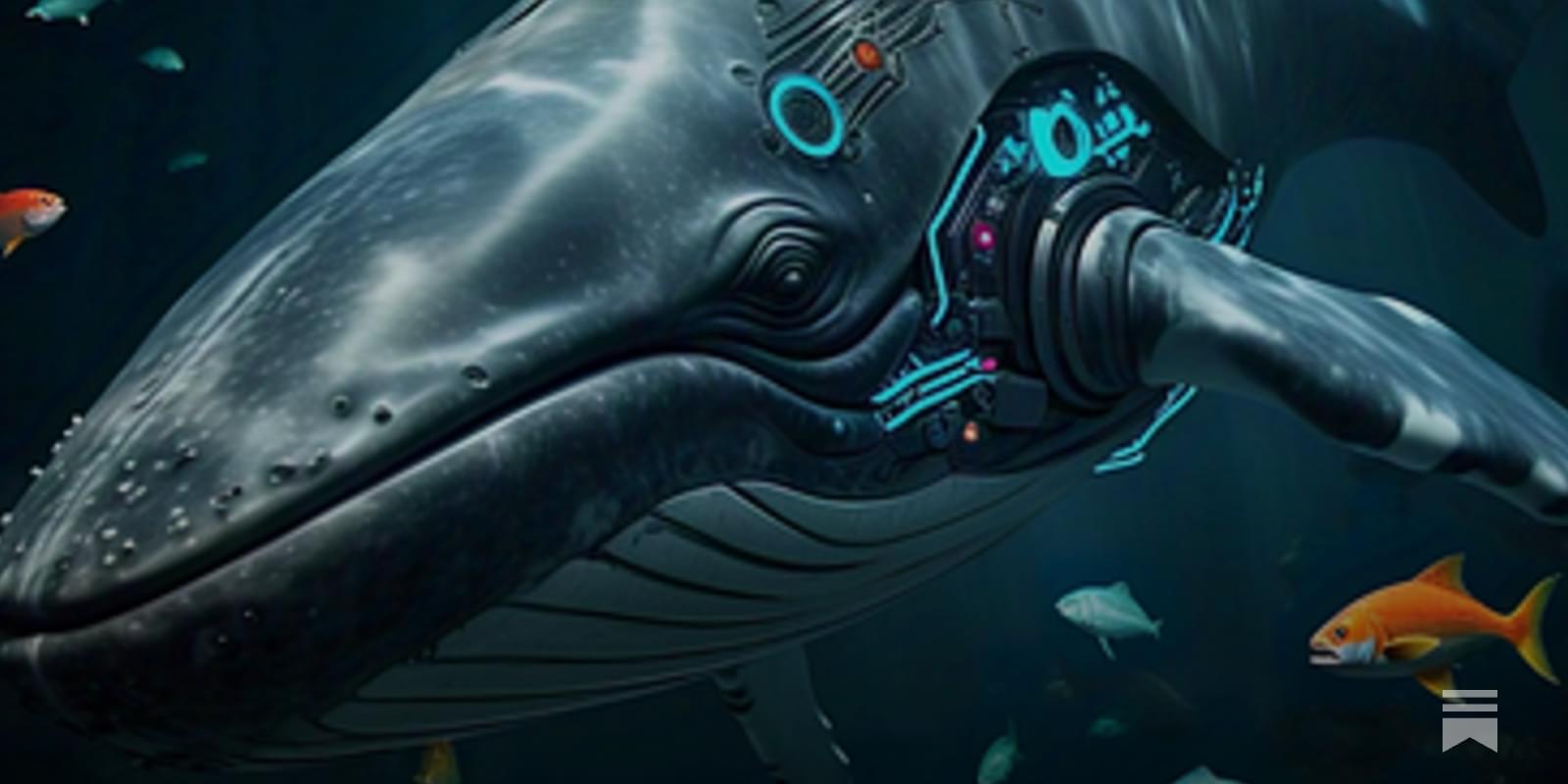Summary of the open innovation session at the NATO Innovation Network Conference — 9 Nov 2021. Credit: Dimitris Moulas.
Very excellent.
Arc Institute researchers have developed a machine learning model called Evo 2 that is trained on the DNA of over 100,000 species across the entire tree of life. Its deep understanding of biological code means that Evo 2 can identify patterns in gene sequences across disparate organisms that experimental researchers would need years to uncover. The model can accurately identify disease-causing mutations in human genes and is capable of designing new genomes that are as long as the genomes of simple bacteria.
Evo 2’s developers—made up of scientists from Arc Institute and NVIDIA, convening collaborators across Stanford University, UC Berkeley, and UC San Francisco—will post details about the model as a preprint on February 19, 2025, accompanied by a user-friendly interface called Evo Designer. The Evo 2 code is publicly accessible from Arc’s GitHub, and is also integrated into the NVIDIA BioNeMo framework, as part of a collaboration between Arc Institute and NVIDIA to accelerate scientific research. Arc Institute also worked with AI research lab Goodfire to develop a mechanistic interpretability visualizer that uncovers the key biological features and patterns the model learns to recognize in genomic sequences. The Evo team is sharing its training data, training and inference code, and model weights to release the largest-scale, fully open source AI model to date.
Building on its predecessor Evo 1, which was trained entirely on single-cell genomes, Evo 2 is the largest artificial intelligence model in biology to date, trained on over 9.3 trillion nucleotides—the building blocks that make up DNA or RNA—from over 128,000 whole genomes as well as metagenomic data. In addition to an expanded collection of bacterial, archaeal, and phage genomes, Evo 2 includes information from humans, plants, and other single-celled and multi-cellular species in the eukaryotic domain of life.
Physicists suggest time may emerge from quantum entanglement, challenging traditional views of reality and the nature of the universe.
Unraveling the Genetic Risk of Cancer
Thousands of tiny changes in the DNA sequence of the human genome have been linked to an increased risk of cancer. However, until now, it has been unclear which of these changes directly contribute to the uncontrolled cell growth that defines the disease and which are simply coincidences or minor players.
Stanford researchers conducted the first large-scale analysis of these inherited genetic changes, known as single nucleotide variants. Their study identified fewer than 400 variants that play a key role in triggering and sustaining cancer growth. These variants influence several critical biological pathways, including those that control DNA repair, energy production, and how cells interact with their microenvironment.
Meet the centenarian professor who is a living example of health, fitness and everything good. Popularly known as the nutrition professor, Dr. John Scharffenberg was born on December 15, 1923 in China. A Harvard University alumnus, Dr. Scharffenberg’s interview on longevity and leading a healthy life is very popular on social media. Here are a few risk factors he has warned against in several interviews:
PROVIDENCE, R.I. (WPRI) — Pancreatic cancer is the 10th deadliest form of cancer in the United States, according to the National Cancer Institute.
Fewer than 13% of those battling pancreatic cancer live for more than five years after their diagnosis. That’s likely because roughly 90% of diagnoses are made after the disease has already progressed to an advanced stage.
However, Judge Frank Caprio, who has been battling this “insidious disease” since 2023, said he never let those statistics bring him down.
Before long, machines will become vastly more intelligent than humans…either accept that humans will become the second most intelligent species or impose a global ban — he will speak at Future Day.
Hugo de Garis believes that too many commentators on AI are avoiding the fundamental issue: before long, machines will become vastly more intelligent than humans—potentially trillions of trillions of times more, or even beyond that. Humanity will soon face a critical decision: either accept that humans will become the second most intelligent species or impose a global ban on the creation of artilects (artificial intellects).
In today’s AI news, in a social media post, DeepSeek said the daily releases it is planning for its Open Source Week would provide visibility into these humble building blocks in our online service that have been documented, deployed and battle-tested in production. As part of the open-source community, we believe that every line shared becomes collective momentum that accelerates the journey.
In other advancements, Together AI an AI cloud platform that enables companies to train and deploy artificial intelligence models — has raised $305 million in Series B funding in a round led by General Catalyst, more than doubling its valuation to $3.3 billion from $1.25 billion last March. The funding comes amid growing demand for computing power to run advanced open-source models.
In personal and professional development, if you’re curious about how to integrate AI smartly into your business, here are some friendly tips to get you started while keeping things safe and effective. The key is strategic integration with safeguards in place, use AI’s strengths — without losing your own.
Then, search startup Genspark has raised $100 million in a series A funding round, valuing the startup at $530 million, according to a source familiar with the matter, as the race to use artificial intelligence to disrupt Google’s stranglehold on the search engine market heats up. The Palo Alto-based company currently has over 2 million monthly active users, and the round was led by a group of U.S. and Singapore-based investors.
S like to compete with Google, and what the future of search could look like. + Then, as AI scales from the cloud to the very edges of our devices, the potential for transformative innovation grows exponentially. In this Imagination In Action session at Davos, Daniel Newman, CEO The Futurum Group moderates this expert panel which includes: Åsa Tamsons, Executive VP, Ericsson, Gill Pratt, CEO Toyota Research, Chief Scientist Toyota, Kinuko Masaki, CEO, VoiceBrain, Cyril Perducat, CTO, Rockwell Automation, and Alexander Amini, CSO, Liquid AI.
